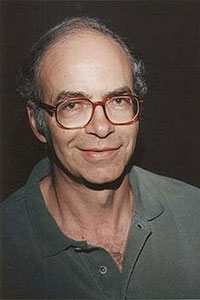Hamas' brazen and vicious attacks within Israel have rightly drawn condemnation around the world. If this is a war, as both sides agree it is, then Hamas' deliberate targeting of civilians counts as a major war crime.
But the brutality demonstrated by Hamas did not emerge in a vacuum. The lesson of what is currently happening in Israel and Gaza is that violence breeds more violence.
The last real chance of avoiding the tragic conflict being waged between Israel and Hamas was destroyed by a single killing: the assassination of Israeli prime minister Yitzhak Rabin in 1995. The assassin was not a Palestinian militant, but an Israeli extremist opposed to the Oslo Accords, by which Rabin sought a "land for peace" deal that was anathema to Israeli radicals, for whom Jewish sovereignty in the Holy Land is non-negotiable.
Rabin's assassination occurred at the end of a peace rally attended by more than 100,000 Israelis, hopeful of an end to hostilities between Israel and Palestinians. At the time, that hope seemed realistic.
The great beneficiaries of the assassination were Israeli nationalists, above all, Benjamin Netanyahu, the leader of the right-wing Likud party. He had rejected the Oslo Accords, because they required Israel to withdraw from the territories it had occupied after the Six-Day War in 1967. In a protest against the accords, and against Rabin, Mr Netanyahu led a mock funeral procession, complete with a coffin and hangman's noose.
In the years after the murder, and particularly following the failure to reach a Camp David settlement in 2000, right-wing extremists gained power in Israel, and the prospect of achieving a viable Palestinian state in the occupied territories all but disappeared. At the same time, the failure of Palestinian leader Yasser Arafat's Fatah movement to deliver statehood strengthened Hamas, which bases its legitimacy on killing Israelis.
With Hamas extending its influence from Gaza, which it has controlled since 2007, to the Israeli-occupied West Bank, where the Fatah-controlled PA is nominally in charge, a growing number of Israelis supported the repressive measures Mr Netanyahu promised.
He now leads the most fanatically nationalist government in Israel's history, a government that includes Finance Minister Bezalel Smotrich, whose responsibilities include the administration of a large part of the occupied West Bank. Mr Smotrich has repeatedly incited violence against Palestinians.
In February, after a Palestinian shot dead two Israeli settlers, hundreds of Israelis rampaged through Huwara, a nearby Palestinian village, in scenes reminiscent of Cossack pogroms against Jewish settlements in Russia more than a century earlier. The Israelis set fire to Huwara, leaving one villager dead and others injured. And, like the Russian police when a pogrom was underway, Israeli forces in the area did not intervene to protect the residents or arrest the perpetrators.
None of this excuses the atrocities committed against Israeli civilians by Hamas terrorists who killed more than 1,000 Israelis, most of them defenceless civilians, including women and children. Horrific videos show Hamas gunmen shooting, in cold blood, young people at a music festival. As a proportion of the population, this attack killed ten times as many people as al-Qaeda's Sept 11 attacks.
Hamas reportedly holds roughly 150 hostages and has said that it will kill one every time Israel bombs a Gazan home without warning. Hamas leaders surely remember that in 2011, Mr Netanyahu, as PM, was willing to free over 1,000 Palestinian prisoners, some of them terrorists, in exchange for the release of a single captive Israeli soldier. Against that background, they may believe that Israel won't be prepared to sacrifice the lives of the hostages to achieve its military objectives.
If that is what the leaders of Hamas believe, they may find that they have made a mistake. Whether Israel can eliminate Hamas as a military force remains to be seen, but it is clear that in the battle to achieve that objective, Israel will have to be prepared to lose many lives, probably of both soldiers and hostages.
How far Israel will go with its declared intention to deny electricity, fuel, food, and water to the two million citizens of Gaza, many of them children, is hard to know. What is certain is that Hamas' brutal crimes do not entitle Israel to starve children.
To many observers, the cause of Palestinian autonomy and statehood has long held the moral high ground. Now, that cause has been stained by the gruesome murders and abductions carried out in its name. Paradoxically, if Palestinians are ever to regain the moral high ground, they must hope for the destruction of Hamas. As long as Hamas can claim to represent them, the evil it has perpetrated will taint their cause. ©2023 Project Syndicate
Peter Singer, Professor of Bioethics at Princeton University, is the author of 'Practical Ethics', 'The Life You Can Save', 'Ethics in the Real Word' and, most recently, 'Animal Liberation Now' (Harper Perennial, 2023).
